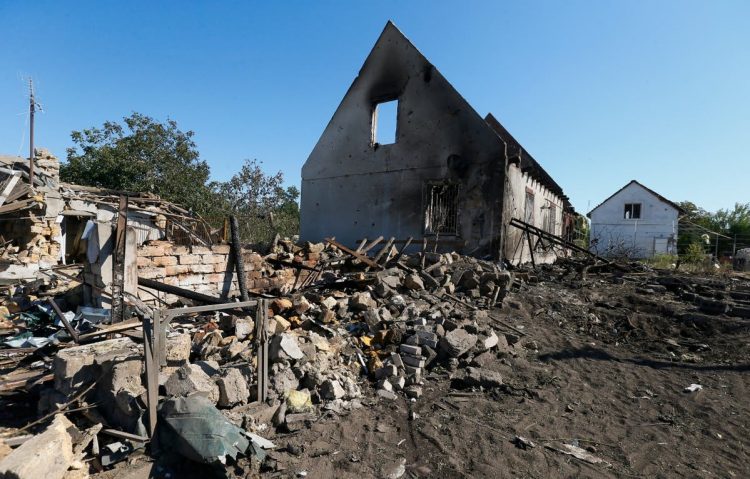Russian missiles hit Ukraine’s Black Sea port of Odesa hours after Moscow and Kyiv signed deals to allow grain exports to resume from there.
The Ukrainian Foreign Ministry denounced the strike as “spit in the face” of Turkey and the United Nations, which brokered the agreements.
Two Russian Kalibr cruise missiles hit the port’s infrastructure and Ukrainian air defences brought down two others, the Ukrainian military’s Southern Command said.
It didn’t specify the damage or say whether the strike caused casualties.
“It took less than 24 hours for Russia to launch a missile attack on Odesa’s port, breaking its promises and undermining its commitments before the UN and Turkey under the Istanbul agreement,” Ukrainian Foreign Ministry spokesman Oleg Nikolenko said.
“In case of non-fulfillment, Russia will bear full responsibility for a global food crisis.”
Guterres’ office issued a statement saying the UN chief “unequivocally condemns” the strikes.
“Yesterday, all parties made clear commitments on the global stage to ensure the safe movement of Ukrainian grain and related products to global markets,” the statement said.
“These products are desperately needed to address the global food crisis and ease the suffering of millions of people in need around the globe. Full implementation by the Russian Federation, Ukraine and Turkey is imperative.”
During a signing ceremony in Istanbul, Guterres hailed the deals to open Ukraine’s ports in Odesa, Chernomorsk and Yuzhny to commercial food exports as “a beacon of hope, a beacon of possibility, a beacon of relief in a world that needs it more than ever”.
The agreements were intended to clear the way for the shipment of millions of tons of Ukrainian grain and some Russian exports of grain and fertilizer held up by the war.
Ukraine is one of the world’s largest exporters of wheat, corn and sunflower oil, but Russia’s invasion of the country and naval blockade of its ports halted shipments.
Ukrainian President Volodymyr Zelensky said in his nightly video address that the agreements offered “a chance to prevent a global catastrophe – a famine that could lead to political chaos in many countries of the world, in particular in the countries that help us”.
The head of Zelensky’s office, Andriy Yermak, said on Twitter that the Odesa strike coming so soon after the endorsement of the Black Sea ports deal illustrated “the Russian diplomatic dichotomy”.
Along with the strike on Odesa, Russia’s military fired a barrage of missiles Saturday at an airfield and a railway facility in central Ukraine, killing at least three people, while Ukrainian forces launched rocket strikes on river crossings in a Russian-occupied southern region.
The attacks on key infrastructure marked new attempts by the warring parties to tip the scales of the grinding conflict in their favour.
Workers storage grain at a terminal during barley harvesting in Odesa region
(REUTERS)
In Ukraine’s central Kirovohradska region, 13 Russian missiles struck an airfield and a railway facility. At least one serviceman and two guards were killed.
In the southern Kherson region, which Russian troops seized early in the invasion, Ukrainian forces preparing for a potential counteroffensive fired rockets at Dnieper River crossings to try to disrupt supplies to the Russians.
Despite the progress on that front, fighting raged unabated in eastern Ukraine’s industrial heartland of the Donbas, where Russian forces tried to make new gains in the face of stiff Ukrainian resistance.Russian troops also have faced Ukrainian counterattacks but largely held their ground in the Kherson region just north of the Crimean Peninsula, which Russia annexed in 2014.
Source by www.independent.co.uk






























